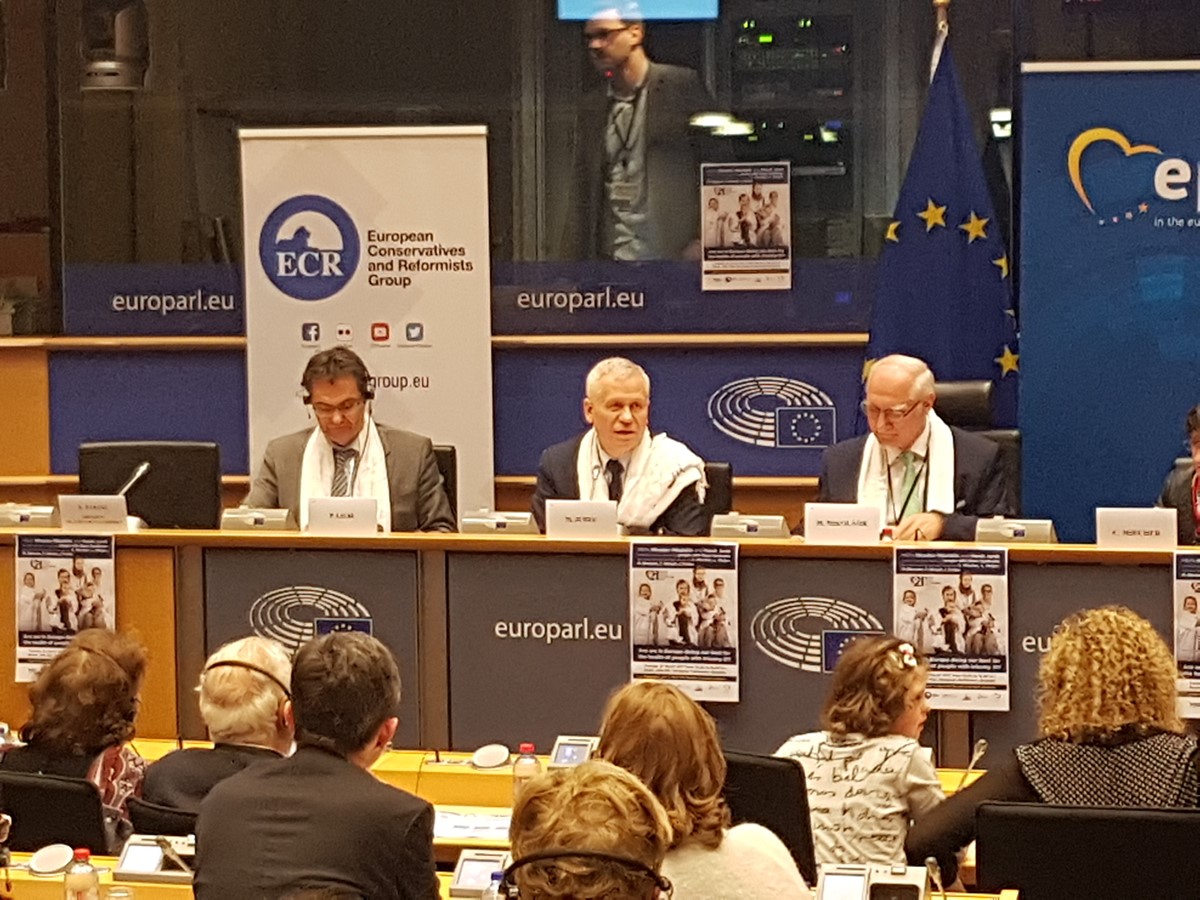
Tuesday, March 21, 2017
Prenatal testing for Down Syndrome
Today we celebrate World Down Syndrome Day. ECPM celebrates the incredible advances that are taking place in social inclusion and in the medical field, making life better for people affected by Down Syndrome and their families. In contrast with this, the development and use of the new techniques of non-invasive prenatal testing (NIPT) is an important threat to the equal rights of people with Down syndrome and even to their very existence in our society.
ECPM supports the celebration of World Down Syndrome Day and has joined different events organised in the European Parliament on this occasion. Our MEP Marek Jurek co-hosted the well-visited conference 'Are we in Europe doing our best for the health of people with trisomy 21?'. Also present was President of the European Parliament Antonio Tajani who, in his short remarks, underlined the need for more funding in research and the need for politicians as well as the EU to work towards finding solutions on issues pertaining to the equal participation of people with Down Syndrome to the society. He hailed the efforts and courage of people with Down Syndrome by saying "You are for us a school of love, a supplement of love".
During this conference, ECPM drew attention to the threat formed by the development and use of the new techniques of non-invasive prenatal testing (NIPT). While the new NIPT techniques are great technological advances when they are oriented and driven by therapeutical goals, they are becoming eugenists’ tools when they are targeting genetical conditions with no possible treatments with the purpose of suppressing them before birth. In a report published on the 28th of February 2017, the UK Nuffield Council on Bioethics warns that if it is made widely available, the test would lead to a large increase in the number of babies being aborted on the basis of disability. In fact, studies shows that when mothers are informed about the possibility of having a disable child they chose to abort them in 75% of cases.
Researchers should focus on developing the NIPT test for conditions that can be successfully treated in the womb in order to improve the lives of people with disabilities, instead of developing eugenists' tools for genetical conditions that cannot yet be treated. The European Parliament as well as national parliaments should protect people with Down syndrome and other genetical disabilities from discrimination before birth, stopping the use of NIPT testings for non-therapeutical purposes.
Concretely, we urge the European Parliament and national parliaments to
- Stop systematic prenatal screening programs that target Down Syndrom and deliberately encourage abortion as part of public health programs
- Regulate the introduction of prenatal testing based on the principles defined in the Universal Declaration of Human Rights, in the Oviedo Convention (articles 11 and 12) and in the EU charter of Fundamental Rights (articles 2,3,21, and 26), the UN Convention on the Rights of Persons with Disabilities (articles 5,10,14,15,23,25)
- Allow the use of genetic testing solely to enhance human care and well-being, and not to discriminate against people on the basis of their genetic predisposition.